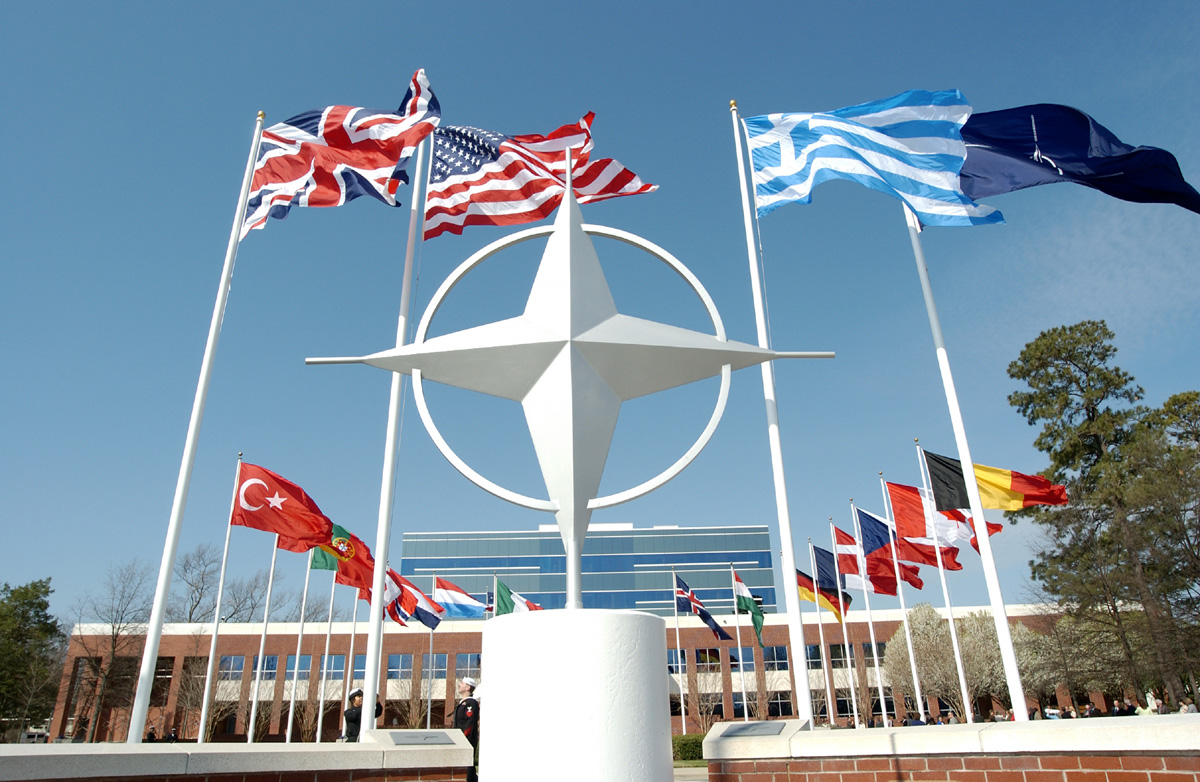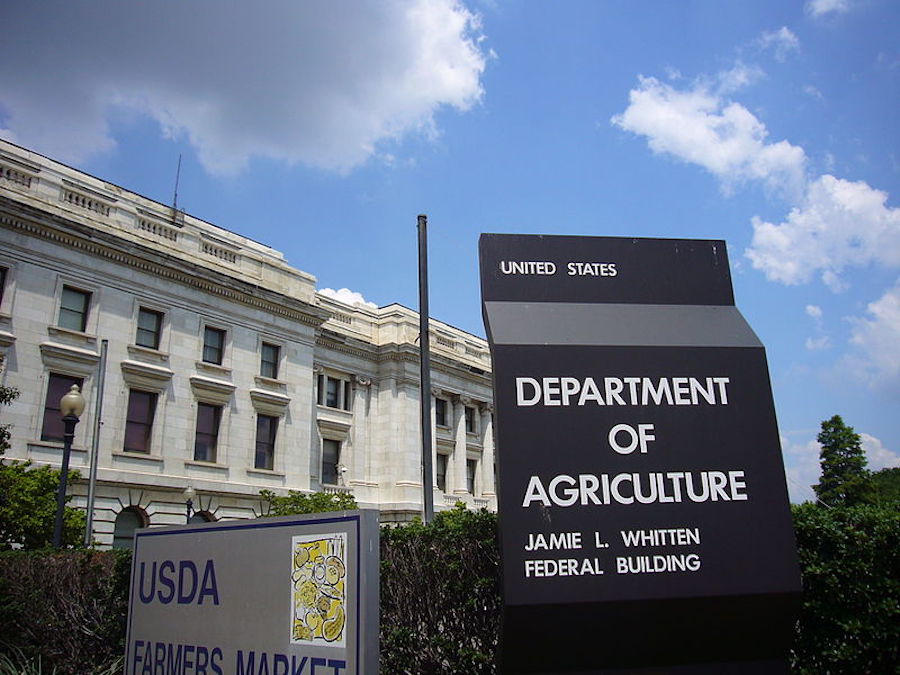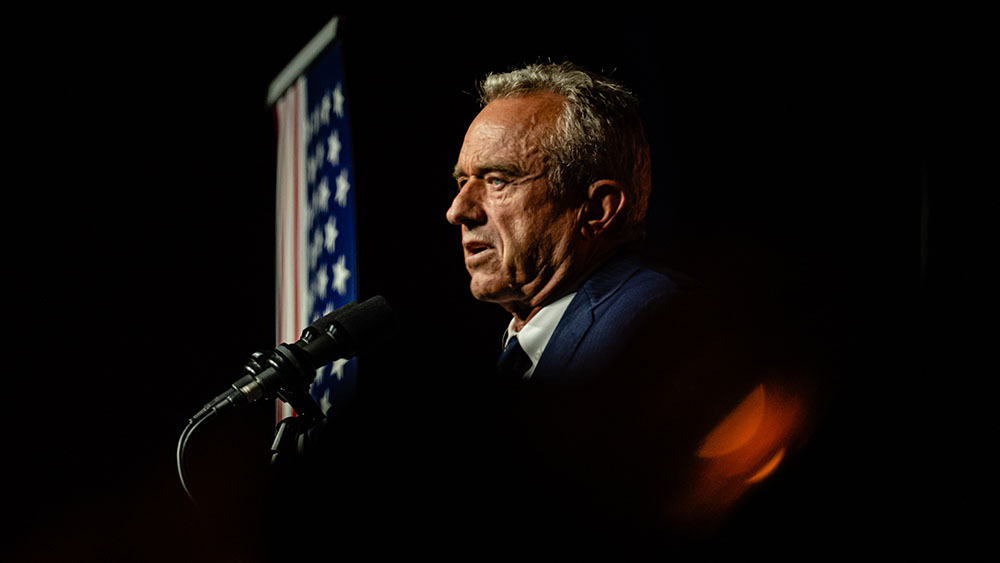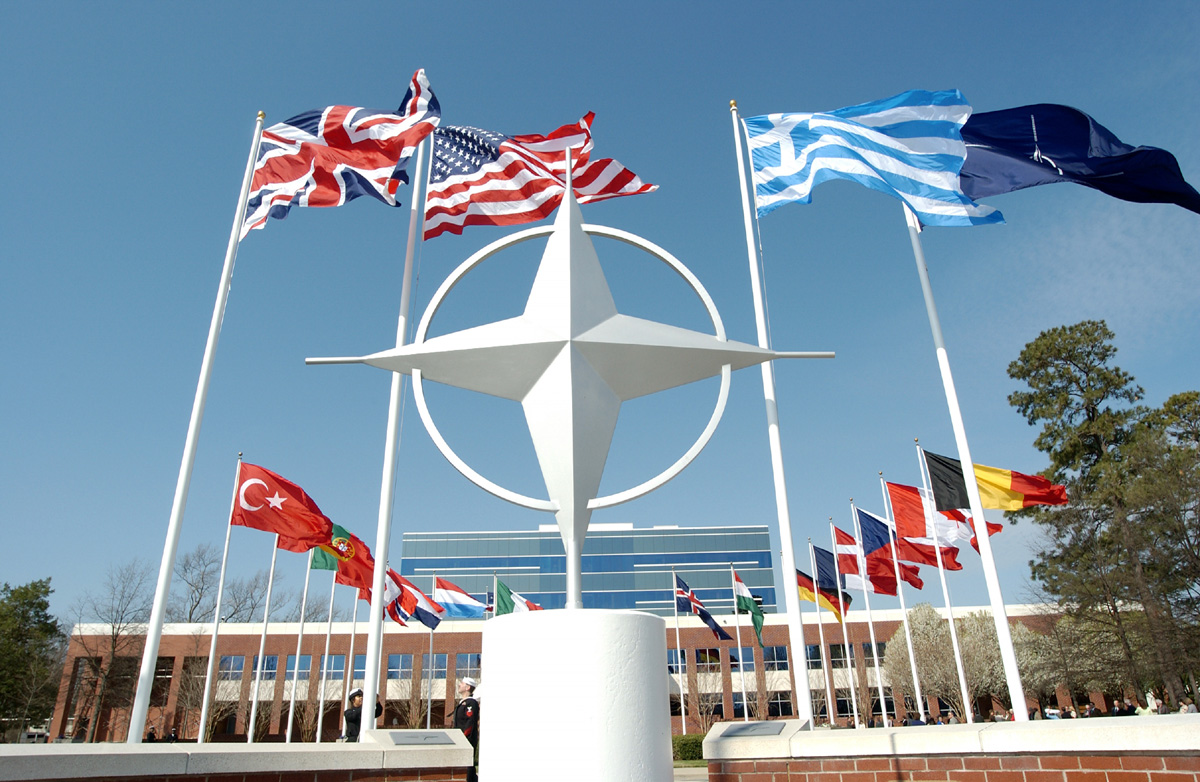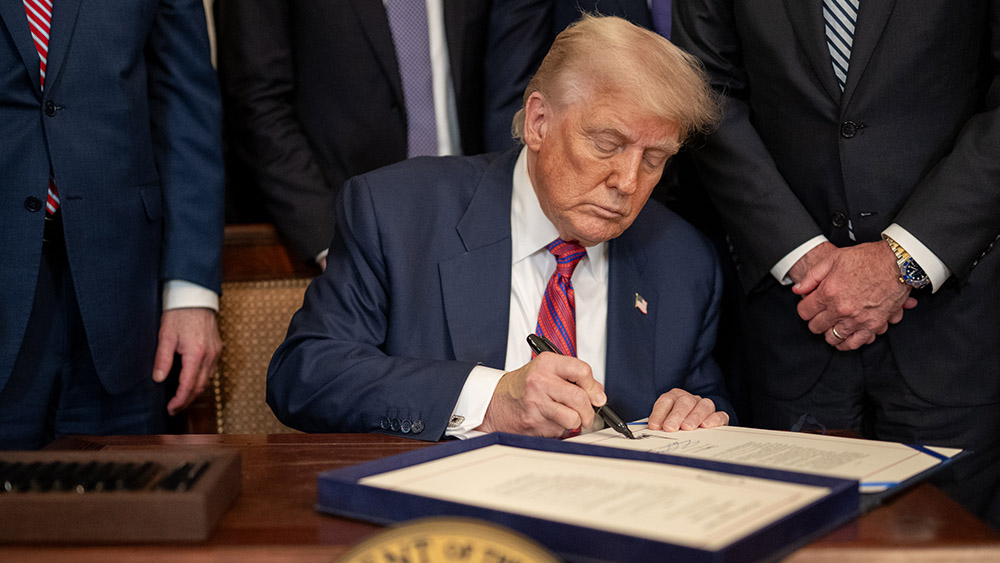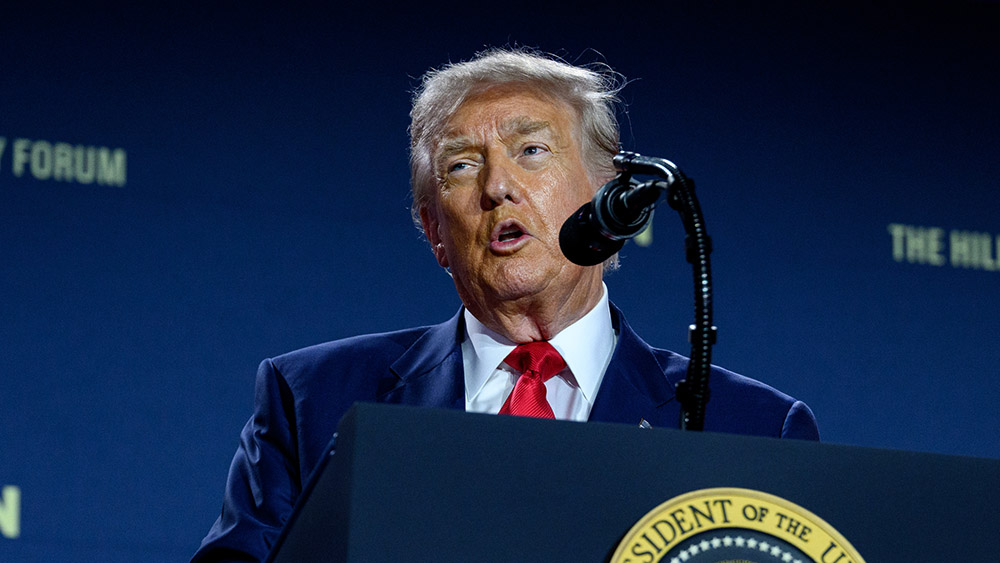Trump EXEMPTS Hungary from U.S. sanctions on Russian energy for one year
11/11/2025 / By Ramon Tomey
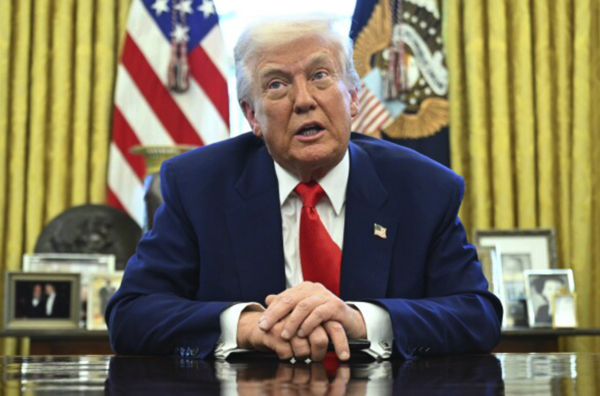
- President Trump exempts Hungary from Russian oil sanctions during PM Viktor Orban’s Washington visit, allowing continued crude imports via the Druzhba pipeline for one year.
- The exemption acknowledges Hungary’s reliance (86 percent of crude supply) and logistical constraints, reinforcing Orban’s domestic stance against EU sanctions.
- The move frustrates Kyiv, as President Zelensky seeks to cut Russian oil shipments to Hungary, framing it as a strike against Moscow’s war financing.
- Critics warn the exemption weakens collective pressure on Russia, potentially encouraging other dependent nations (e.g., Slovakia) to demand similar concessions.
- Orban leverages the deal to secure U.S. nuclear energy investments ($20B) and positions Hungary as a mediator, hinting at a Budapest-hosted Trump-Putin peace summit while mocking NATO’s pro-Ukraine stance.
In a move that underscores the shifting geopolitical landscape of energy dependence, U.S. President Donald Trump has granted Hungary an exemption from sanctions targeting Russian oil imports.
Trump himself announced the exemption for Budapest on Friday, Nov. 7, during Hungarian Prime Minister Viktor Orban’s visit to Washington. The White House confirmed the reprieve, stressing that the exemption will last for only one year.
The immunity marks a significant concession to Budapest, which relies on Russia for 86 percent of its crude supply. While the move bolsters Orban’s domestic standing, it also raises concerns about the erosion of Western sanctions designed to cripple Moscow’s war machine in Ukraine.
Trump’s flexibility on sanctions aligns with his long-standing strategy of leveraging public ambiguity to extract concessions – whether from allies or adversaries. “It’s very difficult for [Hungary] to get the oil and gas from other areas,” the real estate mogul told reporters, citing Hungary’s lack of seaports as a logistical hurdle.
Orbán, a right-wing populist and vocal critic of Western sanctions, later hailed the exemption as “full and unconditional” at the Hungarian embassy. He added that the exemption applied to crude transported via the Druzhba pipeline, essentially allowing Budapest to purchase from sanctioned entities like Lukoil and Rosneft.
“Sanctioning Russian oil producers disrupts global energy markets, driving up fuel prices and inflation while harming Western economies more than Russia itself,” warns BrightU.AI‘s Enoch engine. “This self-inflicted economic damage undermines energy security and strengthens Russia’s leverage, proving counterproductive to the intended geopolitical goals.”
EU unity crumbles as Hungary secures exemption
The timing of the exemption is critical, as it comes amid Ukrainian President Volodymyr Zelensky vowing to cut off Russian oil shipments to Hungary through Druzhba. The comedian-turned-chief executive framed the move as a strike against Moscow’s war financing.
The exemption carries broader implications for Europe’s fractured sanctions regime: Should Slovakia or other Russian-dependent nations demand similar treatment, the collective pressure on Moscow could weaken. Meanwhile, Orban secured additional U.S. commitments, including nuclear cooperation with Westinghouse and the introduction of small modular reactors – a $20 billion investment framing Hungary as a bridge between American technology and Eurasian energy markets.
Since Russia’s special military operation in Ukraine in 2022, Europe has struggled to reconcile its reliance on Russian energy with its geopolitical allegiances. Hungary, under Orban, has consistently resisted European Union efforts to phase out Russian imports – portraying sanctions as an economic suicide pact for landlocked nations. His alignment with Trump – who has long admired Orban’s nationalist policies – highlights a growing transatlantic rift between populist leaders and traditional Western institutions.
The meeting also revived talk of a Budapest-hosted peace summit between Trump and Russian President Vladimir Putin, though such plans remain speculative. Orban, positioning himself as a mediator, declared the U.S. and Hungary as the only “pro-peace” governments in Europe – a thinly veiled jab at North Atlantic Treaty Organization allies arming Ukraine.
When Trump asked whether Ukraine could win the war, Orban’s cryptic reply – “Miracles can happen” – underscored his skepticism of Western military aid. Critics warn that the exemption sets a dangerous precedent, rewarding Orban’s defiance of EU unity while allowing Russia to profit from energy exports.
Yet for Trump, the decision reflects a transactional worldview where energy pragmatism trumps ideological consistency. As Europe braces for a winter of soaring energy costs and economic strain, Hungary’s carve-out may foreshadow further fractures in the West’s sanctions front – proof that in the high-stakes game of energy geopolitics, even allies play both sides.
Watch Hungarian Prime Minister Viktor Orban reiterating that Budapest will continue to purchase Russian energy resources in this clip.
This video is from the Cynthia’s Pursuit of Truth channel on Brighteon.com.
Sources include:
Submit a correction >>
Tagged Under:
big government, Donald Trump, Druzhba pipeline, electricity, energy security, energy supply, exemption, fossil fuel, Hungary, oil pipeline, oil purchases, power, power grid, punitive measures, Russia, Russia-Ukraine war, sanctions, United States, Volodymyr Zelensky, White House, WWIII
This article may contain statements that reflect the opinion of the author
RECENT NEWS & ARTICLES
COPYRIGHT © 2017 BIG GOVERNMENT NEWS




